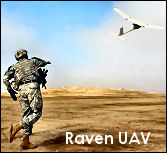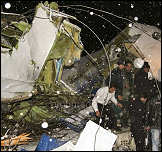
ABOVE: Ruger Mini-14 30-round
magazines
According to a story that ran today in Politico, Anders Breivik claimed in his “Manifesto” that he obtained by mail order from the United States the 10 30-round magazines for the Ruger Mini-14 rifle that he used in the shootings at the summer camp outside Oslo. The cost of the 10 magazines was said by him to be $550.
Breivik wrote in his manifesto that while he could have purchased the high-capacity magazines in Sweden, they would have been significantly more expensive than ordering them from a U.S. supplier.
Although this revelation has led some politicians and others to wonder why such exports are legal, these exports might well have been illegal. The magazines in question would clearly have been Category I(h) items on the United States Munitions List and would have required a State Department license unless one of the export exemptions in the International Traffic in Arms Regulations was applicable. The only one arguably applicable would be the one found in section 123.17(a) which permits unlicensed exports of certain parts and components, including magazines, of “semi-automatic firearms to caliber .50 inclusive” provided the value does not exceed $100 wholesale in any transaction.
Because of the dollar limitation, the export of these magazines, if done in one transaction, would not have been eligible for the exemption and would have required a license, something that likely was not obtained given the relatively low cost of the transaction. Breivik’s “Manifesto” entry on the purchases also makes it sound like it was one export and ineligible for the $100 exemption:
10 x 30 round magazines – .223 cal at 34 USD per mag. Had to buy through a smaller US supplier (who again ordered from other suppliers) as most suppliers have export limitations.
Of particular note here is that Breivik was looking for a U.S. supplier who was willing to, er, overlook U.S. export requirements. That supplier should be very nervous, because I bet that they’ll find shipping documents in Breivik’s apartment with the supplier’s name.

 Posted by
Posted by  Category:
Category: 

 This blog
This blog  The Brookings Institution just issued a brief report entitled “
The Brookings Institution just issued a brief report entitled “ Back in February, this blog
Back in February, this blog  Nothing much of interest at the Sanctions breakout yesterday during the 2011 Update conference held by the Bureau of Industry and Security. The panel members included two people from the Office of Foreign Assets Control (“OFAC”) who went over some aspects of the new Libya sanctions and who conceded, during the Q&A session, that all the work on these new sanctions had slowed down their processing of licenses to Iran for food, medicine and medical devices. (Those exports are permitted under the
Nothing much of interest at the Sanctions breakout yesterday during the 2011 Update conference held by the Bureau of Industry and Security. The panel members included two people from the Office of Foreign Assets Control (“OFAC”) who went over some aspects of the new Libya sanctions and who conceded, during the Q&A session, that all the work on these new sanctions had slowed down their processing of licenses to Iran for food, medicine and medical devices. (Those exports are permitted under the 

